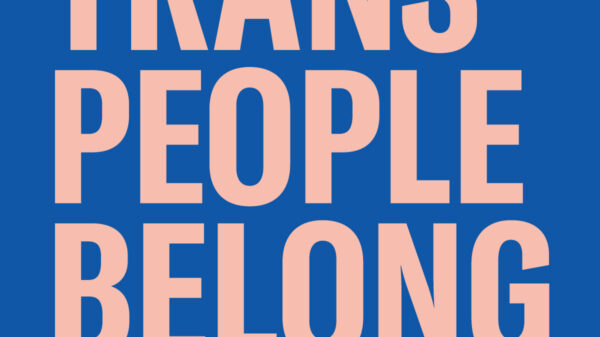Since 1970, the LGBTQ community and our allies have marked June as LGBTQ Pride Month, in honor of the uprising at the Stonewall Inn in 1969. 51 years after Stonewall, a protest that was begun by Black and Brown transgender women like Marsha P. Johnson and Sylvia Rivera, the community returned to its roots for this Pride month. LGBTQ people across this nation have risked their own personal health to take to the streets in support of the Black Lives Matter movement. We have joined with individuals of all backgrounds to demand an end to systemic racism, white supremacy, and police brutality.
LGBTQ pride and the Black Lives Matter movement are one and the same. As a Black trans woman of color, if I am not free as a Black woman, I am not free as a trans woman. However, we all too often see LGBTQ lives -- especially transgender and non-binary lives -- erased from the BLM movement, just as we see Black lives erased from the LGBTQ movement. This cannot continue. The intersectionality of our struggles and lives must be recognized in the movement for Black liberation. If BLM’s message is about Black visibility, Black voices, and Black freedom, then all Black people must be included in this powerful moment and movement.
There has never been a more important time to ensure that we are lifting up the voices and experiences of Black and Brown transgender women, including here in Alabama. There is currently an epidemic of violence against transgender and gender non-conforming people in this country, especially targeting Black trans women. The world must understand and recognize our humanity, and we must end this violence.
I know firsthand that this work is not easy to do. Especially in Alabama, working for both LGBTQ rights and racial justice comes with challenges. Although Alabama has a deep civil rights history, the state has also carried its dark history of discrimination, segregation, and isolation into the present -- particularly towards QTBIPOC.
Heartbreakingly, in places like Alabama, religion and faith are also all too often used as tools of discrimination instead of tools of love. However, as a Black transgender woman and clergy in ministry, I take a different approach. Serving in ministry has informed me that I must help those that have been rejected and marginalized and provide everyone with radically inclusive love, acceptance, and reconciliation towards hope. Offering the LGBTQ community inclusive and liberation theology has helped advance Christian scriptures in ways to provide a method of existing in freedom and togetherness.
Due to lack of education, acceptance, and freedom, Black trans women and other marginalized groups are often not accepted or respected for living out their truth. I often share that if society could see themselves in each other, I believe that we would understand we are more alike than we are different. The truth is that everyone in life transitions, in one manner or another, and the reality is that we all deserve to live our lives with respect and freedom.
Trans activists like Marsha P. Johnson and Sylvia Rivera risked their lives and helped bring about a new and authentic way of gender expression and visibility. Our trans and gender non-conforming elders created a foundation for all LGBTQ folks to celebrate their existence and rights with Pride. Tracing the roots of Pride back to Stonewall and the work of these esteemed activists reminds us that our work must continue to free others to live out loud. Without the history of Marsha P. Johnson, Sylvia Rivera, and the “T” in their narrative, there would not be Pride in LGBTQ.
In our shared struggle for full equality, Black trans folks should not be made to feel like we have to pick sides. We are an integral part of LGBTQ pride, and we are an integral part of Black Lives Matter. That truth must be recognized and lifted up.
Although this year’s Pride month is now behind us, we cannot allow the activism sparked in this moment to be extinguished. We must give it new life, day after day, following the example of the Black and Brown trans activists who came before us. If we are truly committed to transformative change, then we must continue to show up, speak out, and embody the change we seek. When we do, that will be something for us all to be proud of.
This guest blog is written by Carmarion D. Anderson, who is the Alabama State Director for the Human Rights Campaign (HRC)'s Project One America. Carmarion is a vibrant and visible trans woman of color with a passion for inclusion and equality for all. Carmarion became the first trans person of color to serve in a leadership role with HRC in the organization’s history. You can follow Carmarion on Twitter at @cander01.
Photo: Mike Von

